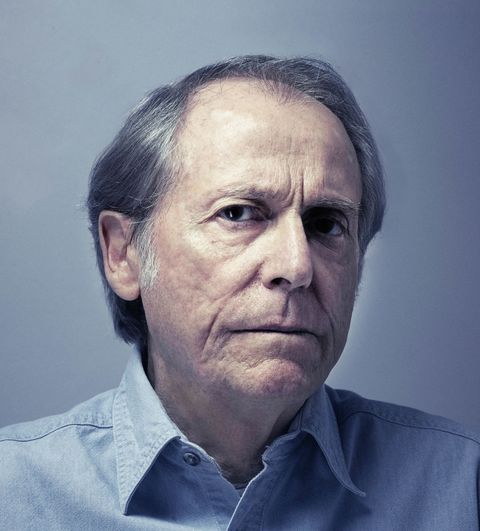 |
| Don DeLillo |
Don DeLillo: What I've Learned
The 100 best novels / No 98 / Underworld by Don DeLillo (1997)
Paul Wilson
June 17, 2016
Comic books were the only thing I read as a child. I didn't come from a family of people who had a reading tradition, at least not in English. I lived in a very crowded house, but my Italian-American experience is not the Italian-American experience you understand from films and television shows you may have seen. You may have seen more of those than I have.
I like to imagine things, and do as little research as I can possibly manage. I don't want to learn too much, I want to be free to invent.
Routine used to seem compulsory, but it doesn't anymore. I work mornings, always, but I don't necessarily return again in the afternoon. My mind just isn't working the same way.
 |
| Don DeLillo |
In the space of a day and a half [in 1964], I knew I had to quit working in an ad agency. But I didn't quit to become a writer, I quit to quit the job. I'd saved some money and the rent for my apartment in New York then was only $60 a month. I knew it was time. Writing fiction came later.
It is important to make decisions based on what you feel to be right. The landlord of my $60-a-month apartment offered to eliminate my rent if I were willing to take out the garbage for everybody in the building. It was actually an interesting proposal. But finally I turned him down because I would have to get up at six in the morning and that did not fit in with my writing routine.
In the Sixties, when great European and Japanese movies began to appear in New York, they were a revelation and may have had some kind of effect on my work, although I can't describe exactly how or what. I suppose it did tend to help me think visually. Antonioni, Godard, Fellini, Kurosawa and Truffaut — I'm just rattling off names, of course there are others — those filmmakers produced work that still lives, no doubt about it. I still go to the movies, absolutely. Good movies I've seen recently? Son of Saul was very impressive. It is powerful.
My memory of baseball players, and even the numbers they wore on their uniforms, is much sharper for the Fifties and Sixties than for contemporary players, but I'm not a sports fan who pines for the games and players of his youth. You might say not as immersed as I used to be, but baseball is still a great game.
Getting older hasn't diminished my need or my urge to write, and I get maybe even more of a thrill from working with words and constructing sentences because I've come to understand that so much of this is sheer intuition. Sure, I think about whether this process may not work for me someday, but I also have an idea for something new.
When I lived alone back in the Sixties and early Seventies, all I cooked was bacon and eggs. That was finally pointed out to me that it was pretty unhealthy. I'm a terrible cook. I don't like to cook. It's against my religion. I like to eat, but I just can't cook. There you are — maybe that is one of the reasons I've been married for 40 years.
People tell me I've had a bestselling book, but I honestly don't know the sales of any of my books. I never cared about that. What I care about, and am happy about, is that I was able to keep doing it, to write fiction. That's essentially the heart of the entire matter, and this is another aspect of the feeling of sheer good luck that I carry around with me.
I'm afraid I haven't seen any of the television dramas that people call novelistic. I just don't tend to lean in that direction, I don't know why exactly. On television I watch news and sports and the occasional documentary.
The secret of being married for 40 years is you eat, drink and sleep. We're not looking for romance here, we're looking for survival. But I absolutely have enjoyed being married.
My characters don't speak for me, ever. So when one of them says he can "poke his finger through the thinness of contemporary life", that's not me. Would I say that if directly questioned? I don't think life is necessarily thin. There's too much danger in the world to describe it as thin. I don't want to alert people to those dangers. I simply want to write fiction. I wouldn't know how to alert people to anything at all, even if they needed to tie their shoe.
There's no particular logic behind how I start writing something. Every so often, I begin with only an image. With my new book, it was simply imagining a series of tall buildings clustered at the edge of a river. That's all I had. This did not survive to the finished book. But I think that once I felt the idea of a physical remoteness behind this story, which that image gave me, I felt that there had to be something secretive going on, and that's where the idea of cryogenics entered.
Most people see death as a problem, as something inevitable that they wish did not have to happen. I don't see it that way. Writing a book about cryogenics has not made me want to choose that path, but I do think for many people it represents a possible solution to the spectacle of dying, and it would be better than nothing.
Zero K (Picador) is out now


No comments:
Post a Comment